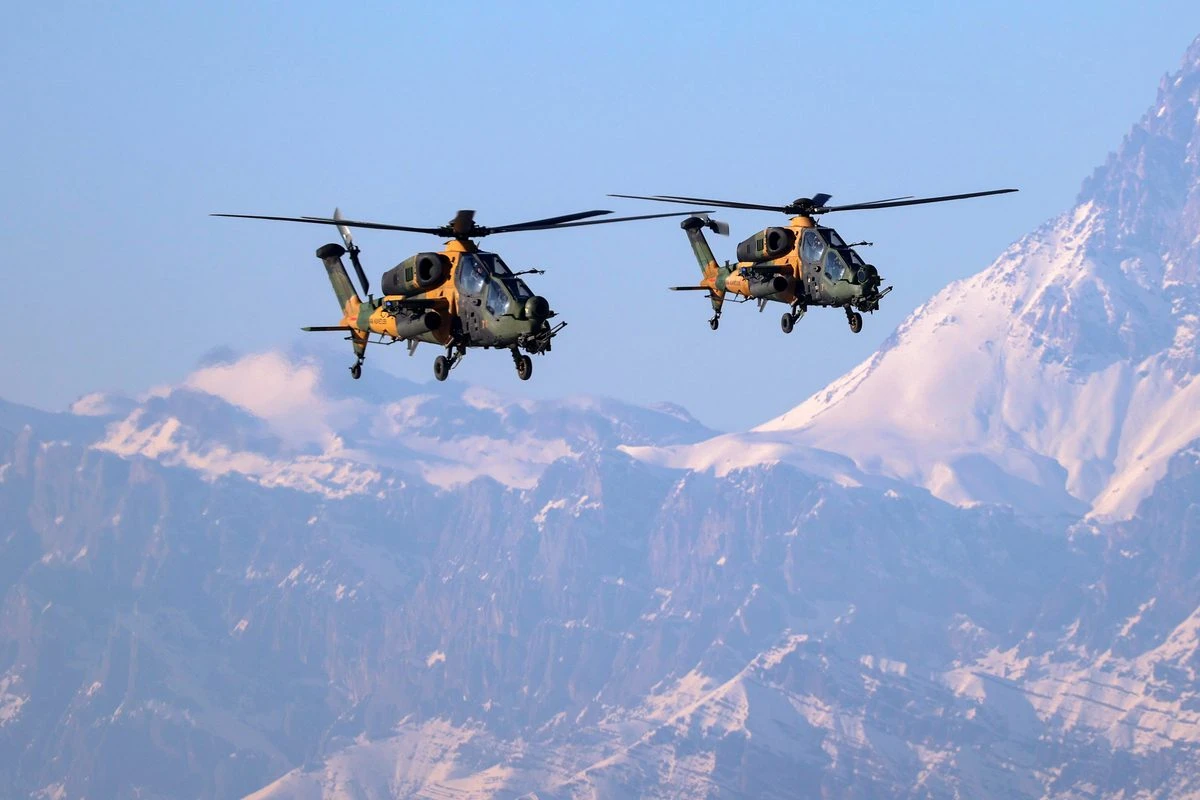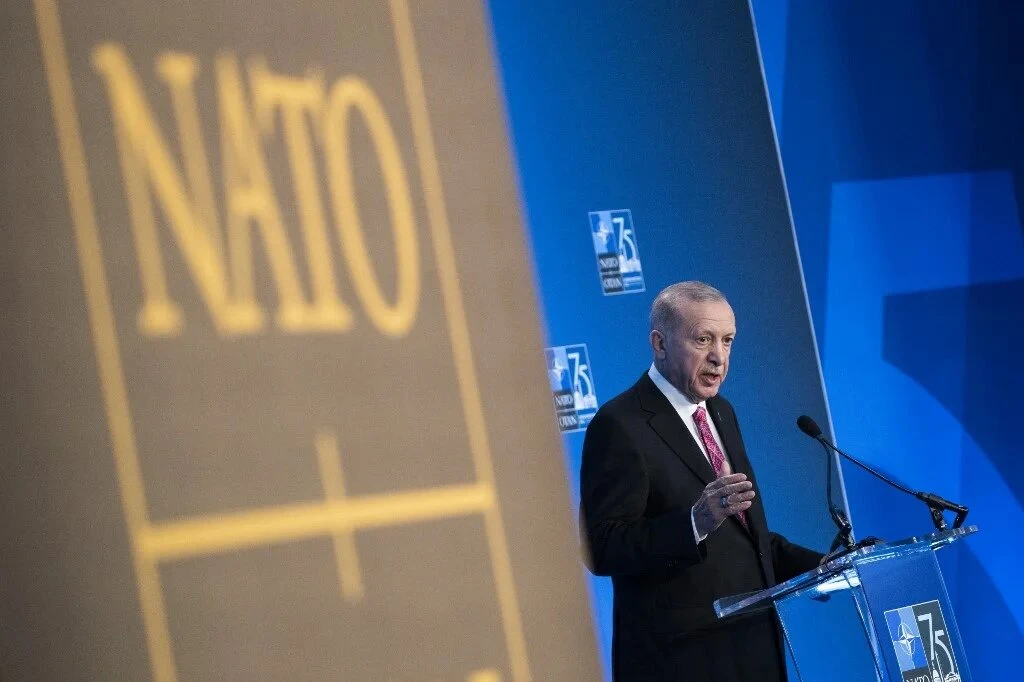Türkiye’s continues counterterrorism operations in Iraq
 Turkish attack helicopters patrol over the area on the Iraqi border of Derecik district of Turkiye’s Hakkari on February 14, 2022. (Photo by Özkan Bilgin via Anadolu Agency)
Turkish attack helicopters patrol over the area on the Iraqi border of Derecik district of Turkiye’s Hakkari on February 14, 2022. (Photo by Özkan Bilgin via Anadolu Agency)
In recent months, Türkiye has intensified its military operations in Iraq, specifically targeting PKK/YPG terrorist group elements in Dohuk province.
The ongoing efforts are part of Operation Claw-Lock, which was initiated in 2019 to combat the terrorist organization Kurdistan Workers’ Party (PKK), which is also a designated terrorist organization by many countries in areas of Iraq and Syria near the Turkish border.
Military engagement and displacement
According to media reports, Turkish Armed Forces crossed the border in June, conducting artillery strikes in several villages. These actions led to the displacement of numerous villages along the border due to the PKK/YPG presence in the villages. Turkish Ministry of Defense published hard evidence about the YPG/PKK presence in those villages.
Türkiye distributed information notes to civilians before the operations, ensuring awareness of the impending actions. It’s also been said by the Turkish authorities that PKK/YPG uses incendiary munitions to create wildfires in the region.
Making a statement about the Claw series operations, the Turkish Ministry of National Defense said, “Due to the authority vacuum in northern Iraq, the so-called Hakurk, Metina, Zap, Gara, Avashin-Basyan, Sinat-Haftanin, Kandil and Asos regions had become an area used by the PKK/KCK and its supporters for recruitment, shelter, logistical support and preparation of actions against our country.”
The ministry added, “The terrorist organization was attempting to infiltrate our country and carry out terrorist acts by exploiting the region and poisoning the personnel it recruited. These areas were also defined by the terrorist organization as impenetrable and inaccessible.”
Wherever terrorists are found is a legitimate target of the Turkish Armed Forces.
Turkish MoD
“The gains achieved in the fight against terrorism are also supported with great satisfaction by our citizens in the region, who have suffered from terrorism for years. In our cities with historical and cultural richness, especially in Sirnak and Hakkari, terrorism is no longer a threat,” the Turkish Defense Ministry noted.
According to the U.S. Combined Joint Task Force – Operation Inherent Resolve (CJTF-OIR) report, since 2018, Türkiye has established 40 military bases and over 100 military outposts in northern Iraq.
PKK/YPG aligned with Iran-backed groups
In response to Türkiye’s partnership with the Kurdistan Democratic Party (KDP), the PKK has allied with Iran-backed militia groups and strengthened ties with the Patriotic Union of Kurdistan (PUK), which rivals the KDP.
This alliance has increased tensions between the KDP and PUK, leading Türkiye to retaliate by closing its airspace to Turkish commercial flights from Sulaymaniyah, a PUK stronghold. However, the airspace closure was not politically motivated, contrary to what some U.S. reports suggest.
The airspace closure was due to the PKK/YPG acquiring advanced weapons systems from Iranian-backed organizations, which they transported to Iraq through Sulaymaniyah Civil Airport, effectively using Sulaymaniyah as a safe zone for the PKK/YPG. Despite clear evidence of the PUK’s support for the PKK/YPG and repeated warnings, the PUK continued its support without interruption.
Why these operations are important
Iraq plans to shorten travel time between Asia and Europe through Türkiye with the Grand Faw Port, the initial phase of the Development Road project, aiming to establish a new transit hub. Dubbed the Iraqi Silk Road, this route will offer an alternative to the Suez Canal, facilitating faster and more efficient trade.
The 745-mile (1,200-kilometer) railway and highways will link the Grand Faw Port – envisioned as the largest port in the Middle East – to the Turkish border. The project, projected to cost $17 billion, is expected to be completed by 2025. The project, with its endpoint in Türkiye, will have a wide-ranging effect from Europe to Gulf countries.
Construction at the first stage of the Development Road project, the Great Faw Port in Basra, is advancing steadily. Located at the mouth of the Shatt al-Arab, where the Euphrates and Tigris rivers meet, the port is set to become a crucial transit hub.
The project features railway and road lines extending from the port to the Turkish border, passing through key cities such as Diwaniyah, Najaf, Karbala, Baghdad, and Mosul. This infrastructure will provide access to the Mersin Port in Türkiye.
The establishment of this road could provide new economic opportunities for the region’s residents and potentially revitalize the Middle East, which has long been affected by war and terrorism.



